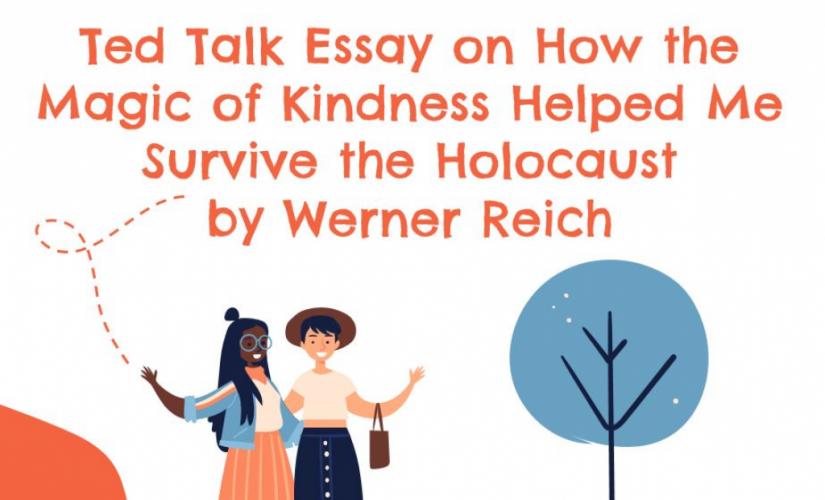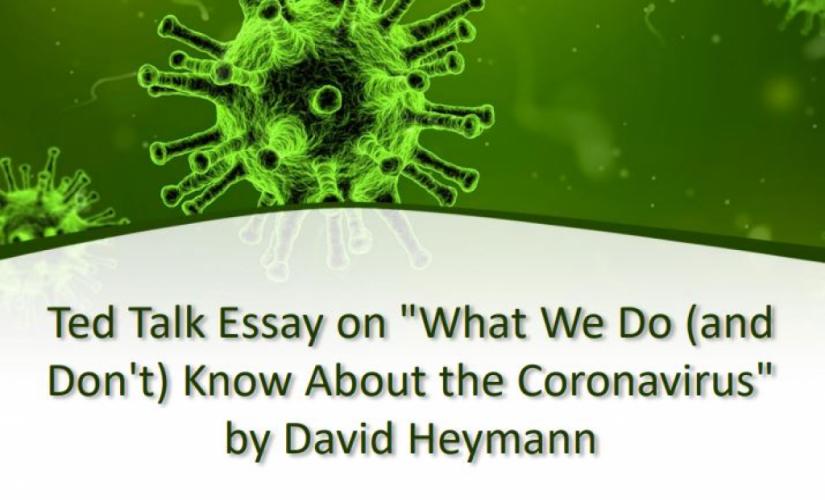By considering this Ted Talk essay, the video called “How The Magic of Kindness Helped Me Survive the Holocaust” tells the story of a Jew. This man had enjoyed an act of kindness while staying at the Auschwitz camp. When he was an adolescent, a compassionate man taught him a life-changing magic trick. Hence, it is essential to treat scared people kindly as evidence from a story by Werner Reich, who overcame a challenging fate, reached happiness, and became a decent narrator.
Reich’s Challenging Fate
The most prominent aspect of the analyzed video is the storyteller’s challenging fate and attention to detail. Werner Reich survived World War 2 and lost his family at a very young age (00:06:59-00:07:30). However, he did not become desperate and started to seek new opportunities in other countries. Basically, this talk inspires those experiencing difficulties in finding happiness in the little things. Such an approach shows that treating people kindly in hard situations is the best way to make them feel better and see bright moments through dark ages.

Kindness Boosts Happiness
The most interesting part of the video was the story about how a stranger from the concentration camp made an imprisoned boy happy. Brodrick says that “being kind to ourselves or to anyone else — yes, even a stranger — or actively observing kindness around us boosted happiness” (par. 5). In this case, Herbert Levine’s magic trick was probably the only joyful moment in the boy’s life at that moment, and he could have neglected it under other circumstances. However, Reich values this experience and perceives his past as something that made him the person he is today.
Werner Reich as a Narrator
Although the narrated story is sad, including more jokes in it can make the audience emotionally closer to the performer. To be persuasive, an author should touch the hearts of listeners, which makes them emotionally involved in the narrative (Hoeken et al. 294). Reich shares a unique experience that helped him overcome severe crises, but he poorly connects it to great achievements in his life after the genocide. It would have been interesting to understand how exactly he implemented the acquired knowledge in the future occupation. Hence, the story has not been finished as it does not leave any questions for discussion.
Bias
The author is not biased against something in the analyzed video because he does not have any commercial or personal interest in distorting the plot. He was sincerely sharing an example of how kindness saved his life and why he values this quality the most, which is an effective way to win the public’s respect (Stiff and Mongeau 150). The main message of this talk was to be kind to people when they struggle in life. Such an approach does not only make them smile for a moment, but it also gives them hope for better times.
Conclusion
Kindness made Reich a compassionate person who is not afraid of life difficulties and has become a happy man, which is why it is important to be kind to scared individuals. He enjoys small things in life and calls other people to be supportive of one another. The story lacks some intriguing finale and persuasiveness due to the poor connection with the audience. However, Werner Reich has clearly and passionately delivered his primary message.
Works Cited
Brodrick, Melissa. “The Heart and Science of Kindness.” Harvard Health Blog, 2019, www.health.harvard.edu/blog/the-heart-and-science-of-kindness-2019041816447.
Hoeken, Hans, et al. “Story Perspective and Character Similarity as Drivers of Identification and Narrative Persuasion.” Human Communication Research, vol. 42, no. 2, 2016, pp. 292–311, doi:10.1111/hcre.12076.
Reich, Werner. “How the Magic of Kindness Helped Me Survive the Holocaust.” TED, 2019, www.ted.com/talks/werner_reich_how_the_magic_of_kindness_helped_me_survive_the_holocaust.
Stiff, James, and Paul Mongeau. Persuasive Communication. 3rd ed., Guilford Publications, 2016.


